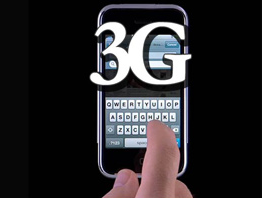NEW DELHI: The government’s early allotment of 3G and BWA spectrum to public sector firms BSNL and MTNL, rather than being an advantage, is fast turning into an encumbrance.
Just days after paying up for its pan-India 3G spectrum holding valued at the recently concluded 3G auction price, BSNL has asked the Department of Telecom (DoT) for a full refund . MTNL is likely to follow. The 3G auctions closed on May 19 and ToI had reported on May 20 that BSNL and MTNL may not be able to pay up.
I t is learnt that BSNL intends to make a similar request for payment to be made on account of Broadband Wireless Access (BWA) spectrum as well.
t is learnt that BSNL intends to make a similar request for payment to be made on account of Broadband Wireless Access (BWA) spectrum as well.
In a letter dated May 31, Kuldeep Goyal, BSNL’s managing director wrote to P J Thomas, secretary DoT, to refund the entire Rs 10,186.58 crore which it paid to the government for pan-India 3G spectrum excluding Delhi and Mumbai. The last date for payment of 3G spectrum dues was May 31.
A similar draft has been prepared asking for exemption for payment of dues worth roughly another Rs 8,313.80 crore for pan-India BWA spectrum excluding Delhi and Mumbai.
The last date for payment of BWA spectrum dues is June 22. If BSNL and MTNL do not pay for 3G spectrum, government’s revenues will be diminished from Rs 67,718.9 crore to Rs 50,968.3 crore. Likewise, for BWA, revenues will diminish from Rs 38,543.31 crore to Rs 26,695.54 crore.
Goyal’s argument in seeking the refund is that unlike private operators, who made informed commercial bids based on their respective business plans, BSNL was allotted 3G spectrum in all its service areas without being given any choice in the matter.
He points out that all the other operators are paying much less in absolute terms than BSNL for 3G spectrum. Excluding Delhi and Mumbai, Bharti is paying Rs 5,731 crore, Vodafone Rs 5,054 crore, Aircel Rs 6,499 crore, Reliance 2,021 crore, Tata Rs 5,864 crore and Idea Rs 5,769 crore, the letter points out.
While Goyal’s reasoning cannot be flawed, there is a small snag. The letter makes no mention of return of spectrum.
According to experts, BSNL’s case would be strengthened if it showed the inclination to return spectrum in circles where it does not wish to pursue 3G, which could then be offered to private operators. This will ensure that the government minimizes its revenue loss and also allows BSNL its choice of circles consistent with the bidding pattern of private operators.
“BSNL’s demand suggests that it wants to have its cake and eat it too” , says an expert. BSNL has been operating 3G services for over 18 months without making much headway in terms of 3G subscriber additions or revenue.

